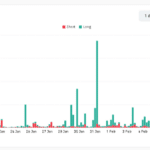By William Pesek
Jan. 28 (Bloomberg)
China took Barack Obama’s views on the yuan seriously. So seriously that it is doing the exact opposite of what the U.S. president would like.
China let the yuan fall the most in a month on Jan. 23, right after Timothy Geithner, Obama’s pick for Treasury secretary, relayed Obama’s campaign position that China was “manipulating” its currency. The reaction was China’s way of telling the new U.S. leader what he can do with his foreign-exchange views.
What should currency traders do now? Is a trade war brewing between the world’s No. 1 and No. 3 economies? Is the yuan about to strengthen? Will Obama risk the ire of the most populous nation to make good on his protectionist campaign-trail rhetoric? Perhaps the answer is for everyone to relax.
Yes, China manipulates its currency. Arguably, so do Singapore, Argentina, Saudi Arabia and any nation that either pegs its currency, maintains a tight trading band or oversees a “managed float” system. Even Hong Kong, routinely ranked as the world’s freest economy by the Heritage Foundation, manipulates its currency. It has to maintain its link to the U.S. dollar.
“Manipulate” is a charged word, and it’s politically incorrect in financial circles. And yet it was hard to keep a straight face when a Commerce Ministry official argued on Jan. 24 that “China has never tried to gain advantage in international trade by manipulating its currency.”
Tuesday, January 27, 2009
Subscribe to:
Post Comments (Atom)




No comments:
Post a Comment